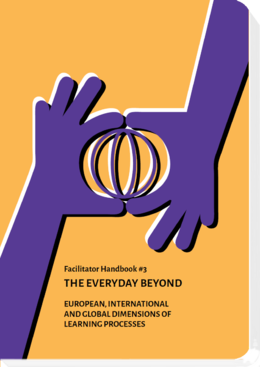Contents
Global Citizenship Education
Global citizenship education aims to be transformative, building the knowledge, the skills, values and attitudes that learners need to be able to contribute to a more inclusive, just and peaceful world.”[1]
Regarding competencies, the relevant domain is that of the citizen, which implies, Global Citizenship Education is a tool to initiate systemic critique, to encourage participation and to empower for change.
"The concept of global citizenship does not relate to nation states or similar geographical and political units. It is rather about participation in a global community, about human identity and solidarity, and about the validity and adherence to human rights on a global scale.” [2]
In a more and more complex world with multiple common challenges regarding finance, economics, wars/conflicts, refugees, democracies and climate change, questions of responsibilities and even guilt arise in education. Learners often are motivated to solve the above mentioned dynamics in a positive and humanist way.
The three learning levels of Global Citizenship Education are:
- Cognitive level: Acquiring knowledge, understanding and critical thinking
- Socio-emotional level: Values, empathy, feelings of belonging to a global community
- Behavioral level: Acting responsibly and politically from glocal perspectives
Looking at the different directions of Global Citizenship Education, we can identify one group that understands it as civic education of global citizens (humanitarian approach) and another group that considers it education for global citizenship (political approach).
Referring to the Sustainable Development Goals to be reached by 2030, the United Nations promotes and demonstrates the importance of global citizenship in goal 4.7 under the big "quality education for all" – goal.[3]
Reference
- ↑ UNESCO (2015): Global Citizenship Education. Topics and Learning Objectives. Paris: UNESCO
- ↑ Wintersteiner, Werner/ Grobbauer, Heidi/ Diendorfer, Gertraud/ Reitmair-Juàrez, Susanne (2015): Global Citizenship Education. Citizenship Education for Globalizing Societies. Klagenfurt, UNESCO; p. 16
- ↑ UN Sustainable Development Goals: https://sustainabledevelopment.un.org/sdg4




